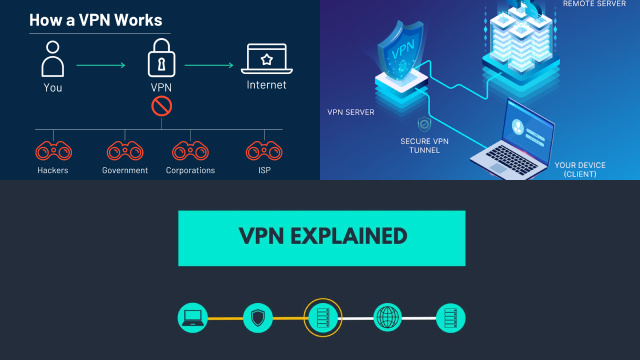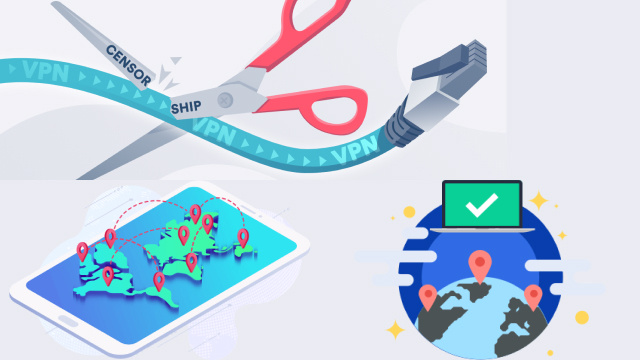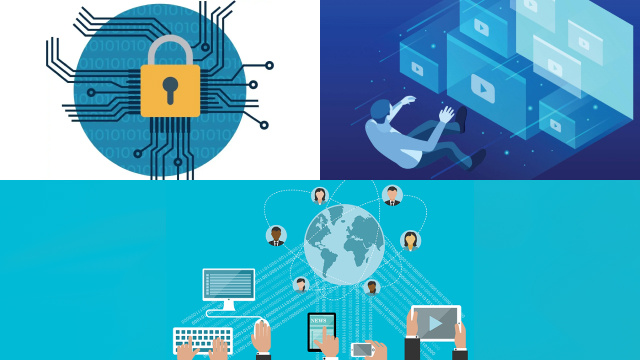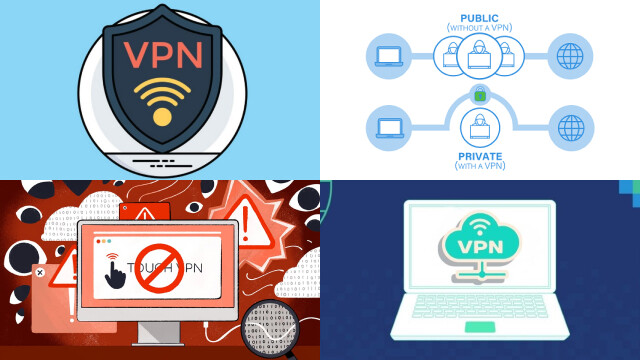How a VPN Works: A Comprehensive Overview
A VPN, or Virtual Private Network, is a technology that allows you to create a secure and private network connection over a public or shared network, such as the internet. When you connect to a VPN, your device creates an encrypted tunnel between your device and the VPN server. This means that any data sent between your device and the VPN server is encrypted and secure.
The VPN server then acts as a middleman between your device and the internet. When you access the internet through the VPN, your IP address is replaced with the IP address of the VPN server. This means that your online activity is hidden from your internet service provider and other third parties.
VPNs are commonly used to protect online privacy and security, as well as to bypass internet censorship and geo-restrictions. They can also be used to access content that may be restricted in your region, such as streaming services or social media platforms.
Overall, a VPN is a powerful tool that can help protect your online privacy and security, and provide greater access to the internet.
Protecting Your Online Privacy with a VPN
In today’s digital world, online privacy is becoming increasingly important. A VPN, or Virtual Private Network, is one tool that can help protect your online privacy. When you use a VPN, your online activity is encrypted and hidden from your internet service provider and other third parties. This means that your browsing history, online searches, and other online activity is kept private.
Additionally, a VPN can help protect you from cyber threats such as hackers and malware. When you connect to a public Wi-Fi network, your online activity is vulnerable to interception by hackers. However, when you use a VPN, your data is encrypted and protected from these threats.
Overall, using a VPN is an effective way to protect your online privacy and security. By encrypting your online activity and hiding your IP address, a VPN can help ensure that your personal information remains private and secure.
Bypassing Internet Censorship with a VPN
In many countries around the world, internet censorship is a growing concern. Governments and other organizations may restrict access to certain websites or online content for various reasons, including political, social, or cultural. However, with a VPN, users can bypass these restrictions and access blocked content.
When you use a VPN, your online activity is encrypted and routed through a private network, making it difficult for governments and other organizations to track your activity. This means that you can access blocked websites and content without fear of censorship or other restrictions.
VPNs can also help protect your online privacy and security when accessing blocked content. By encrypting your online activity, a VPN can help ensure that your personal information remains private and secure.
Overall, using a VPN to bypass internet censorship is a powerful tool for those who want to access blocked content or protect their online privacy and security. With a VPN, users can access the content they want without fear of censorship or other restrictions.
Accessing Geo-Restricted Content with a VPN
Geo-restricted content, or content that is only available in certain countries or regions, can be frustrating for those who want to access it. However, with a VPN, users can bypass these restrictions and access geo-restricted content from anywhere in the world.
When you use a VPN, your online activity is encrypted and routed through a private network. This means that your IP address is hidden, and you can appear to be located in a different country or region. By selecting a VPN server in a country where the content is available, users can access the geo-restricted content they want.
VPNs can also help protect your online privacy and security when accessing geo-restricted content. By encrypting your online activity, a VPN can help ensure that your personal information remains private and secure.
Overall, using a VPN to access geo-restricted content is a powerful tool for those who want to access the content they want from anywhere in the world. With a VPN, users can bypass these restrictions and enjoy the content they want without fear of censorship or other restrictions.
Encrypting Your Internet Traffic with a VPN
In today’s digital world, online security is becoming increasingly important. Encrypting your internet traffic is one way to protect your personal information from cyber threats. A VPN, or Virtual Private Network, is a powerful tool for encrypting your internet traffic.
When you use a VPN, your online activity is encrypted and routed through a private network. This means that any data sent between your device and the VPN server is encrypted and secure, making it difficult for hackers and other third parties to intercept your online activity.
VPNs can also help protect your online privacy by hiding your IP address and online activity from your internet service provider and other third parties. This means that your browsing history, online searches, and other online activity is kept private.
Overall, using a VPN to encrypt your internet traffic is a powerful tool for protecting your online security and privacy. By encrypting your online activity and hiding your IP address, a VPN can help ensure that your personal information remains private and secure.
Choosing the Right VPN Provider: Factors to Consider
When choosing a VPN provider, it’s important to consider several factors to ensure that you select the right one for your needs. Some of the key factors to consider include the VPN’s privacy policy, speed, server locations, and customer support.
Privacy policy is a crucial factor to consider when selecting a VPN provider. Look for a provider that has a clear and transparent privacy policy, and that does not keep logs of your online activity.
Speed is also an important consideration when selecting a VPN provider. Look for a provider that offers fast and reliable connections, with minimal buffering or lag time.
Server locations are also important, as they determine the range of content you can access. Look for a provider with servers in the locations you need to access.
Finally, customer support is crucial. Look for a provider that offers 24/7 customer support, with knowledgeable and responsive representatives.
Overall, selecting the right VPN provider requires careful consideration of these and other factors. By selecting the right provider, you can ensure that your online activity is secure and private.
Setting up a VPN: A Step-by-Step Guide
Setting up a VPN may seem like a daunting task, but it’s actually quite simple with the right tools and guidance. Here’s a step-by-step guide to setting up a VPN:
- Choose a VPN provider that meets your needs and sign up for a subscription.
- Download and install the VPN software on your device.
- Launch the VPN software and log in using your credentials.
- Select a server location and connect to the VPN.
- Once connected, your online activity will be encrypted and secure.
It’s important to note that some devices and operating systems may require additional steps for VPN setup. For example, on a mobile device, you may need to configure VPN settings in the device’s settings menu.
Overall, setting up a VPN is a simple process that can provide significant benefits in terms of online security and privacy. By following these steps, you can ensure that your online activity is encrypted and protected from cyber threats.
Conclusion: Why You Need a VPN in Today’s Digital World
In today’s digital world, online security and privacy are becoming increasingly important. With cyber threats and data breaches on the rise, it’s more important than ever to take steps to protect your personal information online. This is where a VPN, or Virtual Private Network, comes in.
A VPN provides a secure and encrypted connection between your device and the internet, helping to protect your online activity from prying eyes. It also helps to hide your IP address and location, which can help protect your privacy and allow you to access geo-restricted content.
Whether you’re browsing the web, streaming content, or accessing sensitive information, using a VPN can help ensure that your online activity remains private and secure. With so many VPN providers available, it’s important to choose one that meets your specific needs and provides reliable service.
Overall, a VPN is a powerful tool for protecting your online security and privacy in today’s digital world. By using a VPN, you can enjoy greater peace of mind knowing that your personal information is secure and protected.




